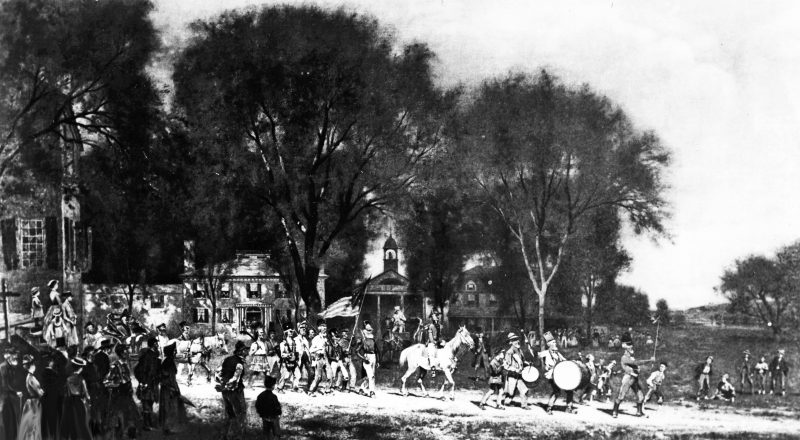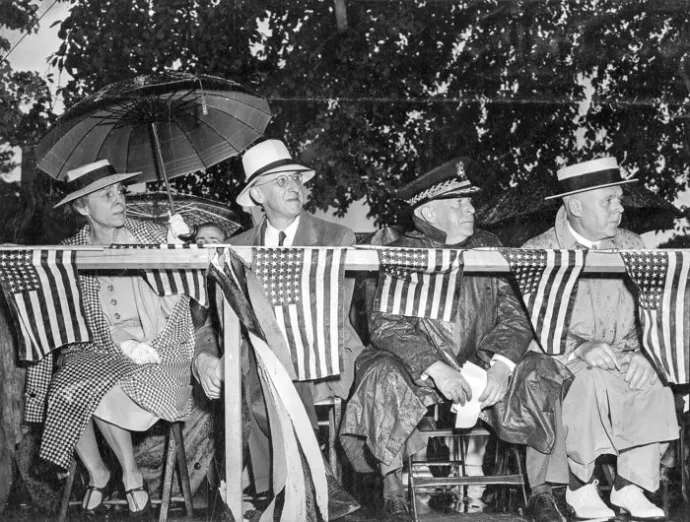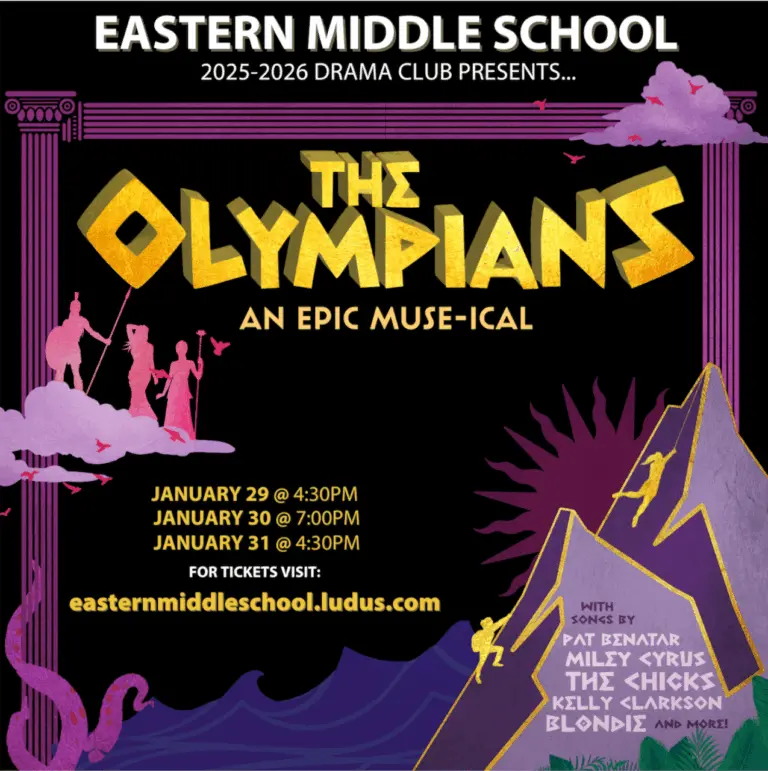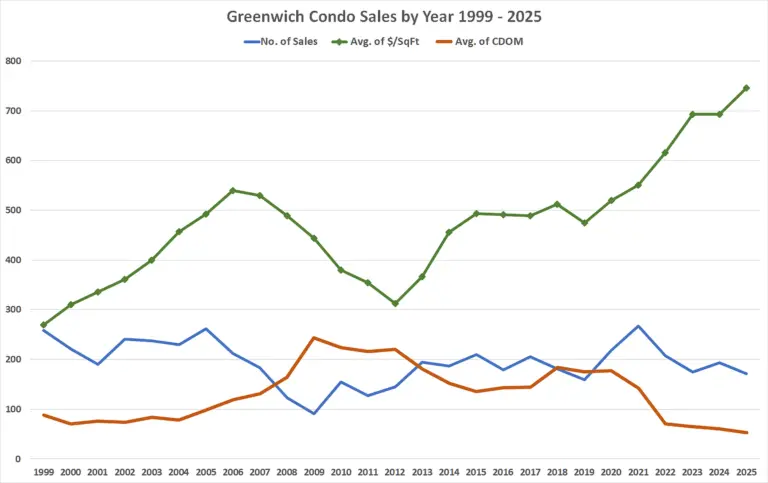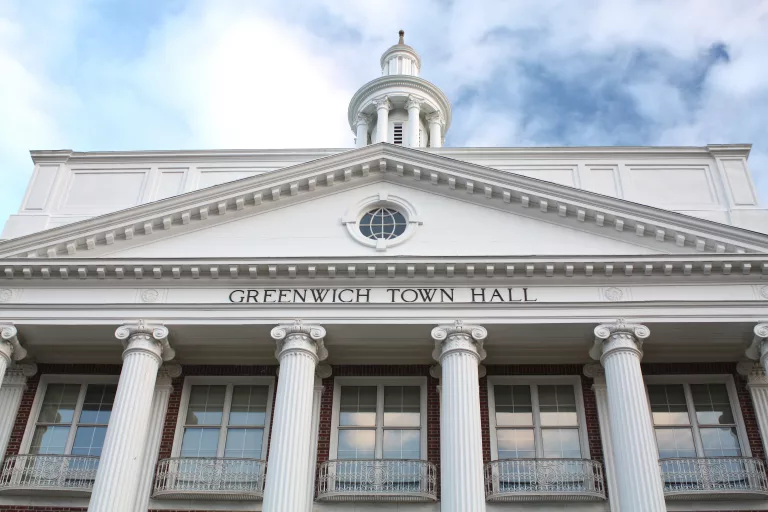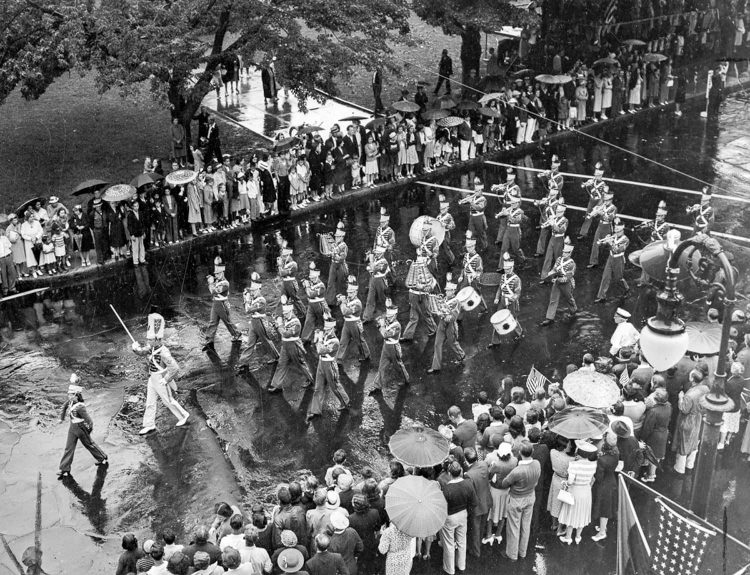
By Mary A. Jacobson
This Fourth of July the Town begins a yearlong celebration of America’s 250th Anniversary, culminating on July 4, 2026, our semi quin-centennial. The Greenwich Library Oral History Project has documented the remembrances of several residents whose reminisces of festive patriotic events are vivid and heart-warming. The following excerpts recall Fourth of July celebrations in the late 1890s and 1920s and Greenwich’s Tercentenary in 1940.
Gladys Husted Rungee Owen, a descendant of the storied Husted family, one of the seminal families in Greenwich, was interviewed in 1993 by Oral History Project volunteer Rhonda Barney Jenkins. Originally owners of one of two of the largest farms in town, Mrs. Husted traces her family back twelve generations in Greenwich. “There were two big farms here in Greenwich at the time, the Husted Farm… and my cousin’s farm, John Lyon, which spilled into Port Chester.”
The Fourth of July celebrations at the Husted Homestead were huge events. “Entire families of the whole town were invited here,” with as many as two hundred people. “Everybody … loved this party, even though it meant a lot of work… the last Fourth of July celebration was in 1903 on this place.” Some relatives from Brooklyn communicated their attendance by the arrival of homing pigeons, “our Morse code.” Before the festivities began, there was a reading of the Declaration of Independence “always read by some member of the Husted family, and also they never broke bread until the Congregational minister had given a prayer.” Henrietta Husted, Gladys Rungee Husted Owen’s grandmother, provided all the food and all the prizes. “In 1903 the big prize was her late husband’s beautiful shotgun.” It was awarded to the winner of the clay pigeon shooting contest. The surprise sharp shooter winner was seventeen-year-old Adeline Smith Husted, Gladys’s mother.
Children looked forward to playing croquet, hoops, darts, horseshoes, and archery. Pony rides and Billy goat rides were also popular activities for them. In case of rain, there were indoor games of Parcheesi, Chinese checkers, charades, blind man’s bluff, pin-the-tail-on-thedonkey, and Hide the Penny. “You were supposed to guess which person had the penny. Grandmother Henrietta always said, ‘You take care of the pennies, and the dollars will take care of themselves.’” Prizes for the winners included produce from the farm including apples, peaches, cherries, eggs, and potatoes.
The employees on the Husted Farm and neighboring farms also gathered together for games and activities. The different farms would play against one another in competitions including tugof-war, wood-sawing, “bale the hay,” horseshoe pitching, baseball, and oxpulling. For the latter, “They’d bring a great big boulder, and the oxen of the different farms would come and pull, up towards Knollwood Drive; and that was really quite something.”
Meat preparation would start the day before by heating the rocks in the large pit of the barbeque and keeping the spits continually rotating. “Almost the whole body of a steer would be on this.” The feast included beef and pork, fresh corn, baked potatoes, clams, oysters, and homemade apple pies. Around four o’clock there would be singers and musicians, followed by dancing.
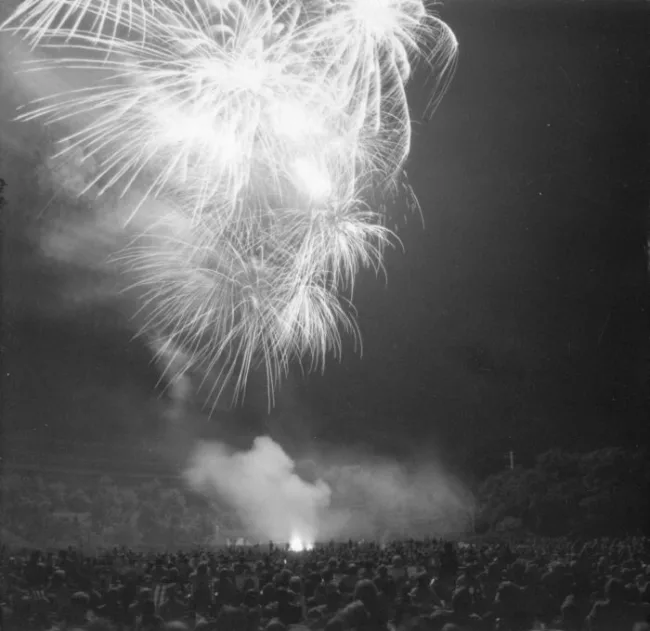
At the end of the evening, guests would sit on the lawn and watch fireworks. Each child would also be given a sparkler “and they would dance around the lawn; and, of course, they didn’t have the electricity we have today. And Grandmother Henrietta said it looked like a whole bunch of fireflies descending on the group.” The one forbidden activity concerned firecrackers. “Great-grandmother would allow no f irecrackers, absolutely no firecrackers… and they never had an accident because great-grandmother had very strict rules about what the children were to do and what they were not to do if they were coming to her party.”
Firecrackers, on the other hand, were the highlight of Fourth of July celebrations in the 1920s for Warren White and Frank Nicholson, interviewed by OHP volunteers Marian Phillips (in 1983) and Owen Jones (in 1974), respectively. As Nicholson recalled of his youth, “You had to make preparation for Fourth of July. You had to save up your money to buy your firecrackers one at a time… and store them away in some place where your brother couldn’t find them so you could be the first one out here on the Fourth of July at the crack of dawn to set off the first firecracker.”
According to Warren White’s memories of those days, “We purchased our fireworks in Breslow’s News Store. Mr. Breslow had a cigar, newspaper and magazine store on lower Greenwich Avenue… At Fourth of July time, he sold fireworks. In front of this store, you’d have two or three counters heaped with these skyrockets, salutes, the most volatile things… and just see the fire commissioners today. They’d have apoplexy… Anyway, it was something to be looked forward to and I remember it with great pleasure.”
On a more historic note, Marie Krumeich, interviewed by OHP volunteer Kim Klein in 1974, remembered the extravagant Tercentenary Pageant held in June 1940, celebrating the 300th anniversary of the founding of Greenwich. “… July 18, 1640 is the date of the founding of Greenwich. The founding fathers, Daniel Patrick and Robert Feake landed on Greenwich Point in a small boat from Captain’s Island, and purchased the land for the first settlement from the Indians for twenty-five coats and some trinkets.” A reenactment of the purchase “actually took place right out there on the Point.” The Tercentenary Pageant lasted a week. “There were many parades, lovely costumes, musical programs, floats, and fireworks every night. It was entitled ‘Under Three Flags’ because Greenwich was first an English colony, and then it became a Dutch Manor for a few years, and finally after the Revolution, American.”
This was a town-wide event in which “it seemed everyone in town had an active part,” including the storekeepers who had their windows decorated with historical displays. Various scenes from Greenwich history were reenacted on the old Greenwich football field including the colonial period, the visits to Greenwich by General George Washington and General Lafayette, the first train passing through town in 1848, the period of industrial development, the Civil War period, the Gay Nineties, the Turn of the Century, and the First World War Years in which Greenwich lost a flyer by the name of Major Bolling, for whom a statue is dedicated in front of the Havemeyer Building. “The finale even had a scene with a vision into the future of Greenwich. But this scene I don’t remember very well.”
To commemorate this historic event, “a special Tercentenary Stamp designed by a local artist, George Wharton Edwards, was issued by the U.S. Postal Service in Washington. And a special Tercentenary Medal was made at the U.S. Mint, and I have a few of these.” In conclusion, Marie Krumeich stated, “Yes, it was a very exciting time and made a lasting impression on me. In fact, I have been deeply interested in Greenwich history ever since.”
The interviews “Husted Family,” “Growing Up on Lewis Street in the 1920s,” “Ice Cream and Automobiles,” and “The Tercentenary Pageant,” may be read in their entirety or checked out at the main library and are available for purchase at the Oral History Project office. The OHP is sponsored by Friends of Greenwich Library. Visit the website at glohistory.org. Our narrators’ recollections are personal and have not been subjected to factual scrutiny. Mary Jacobson serves as blog editor.
